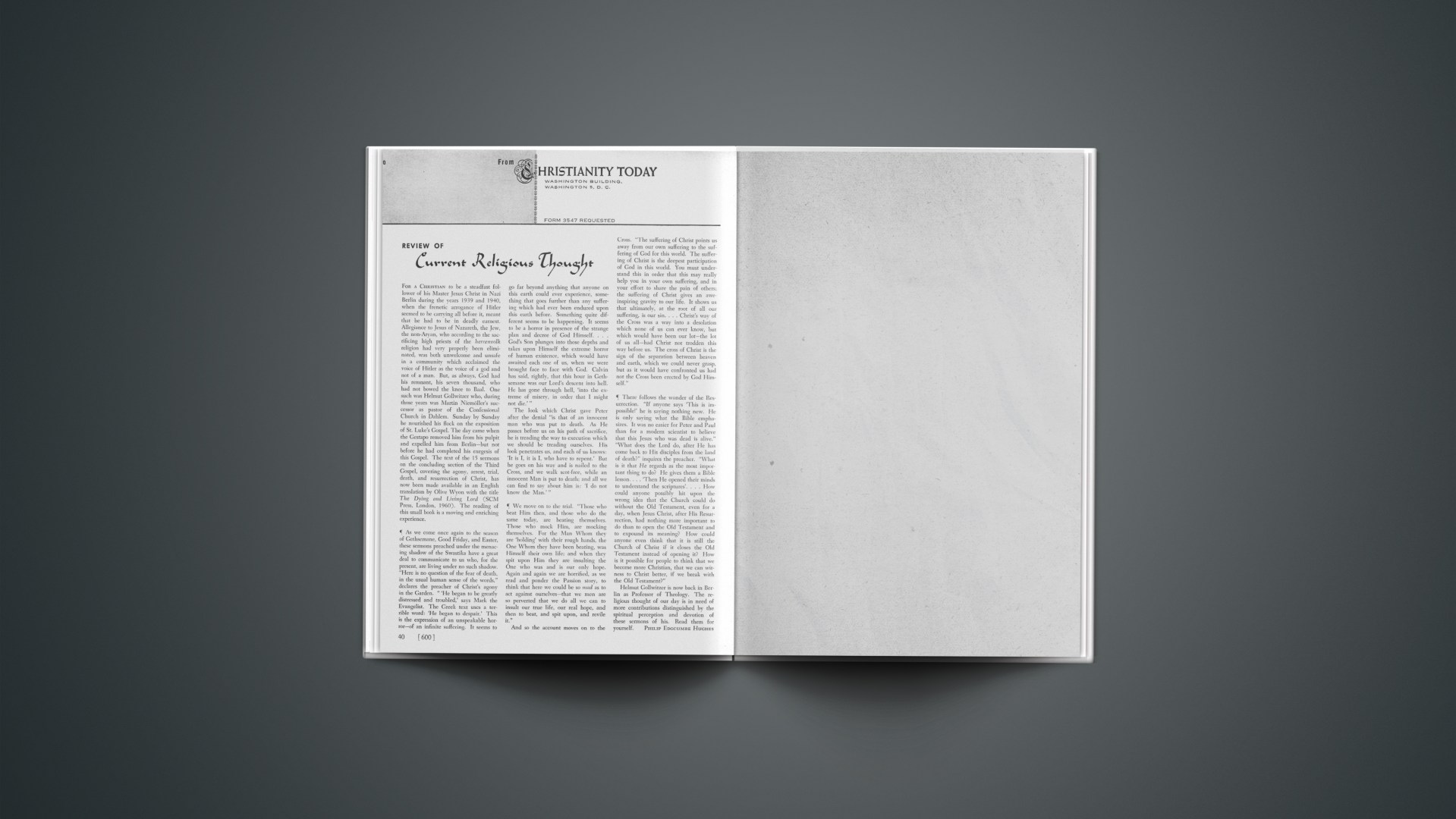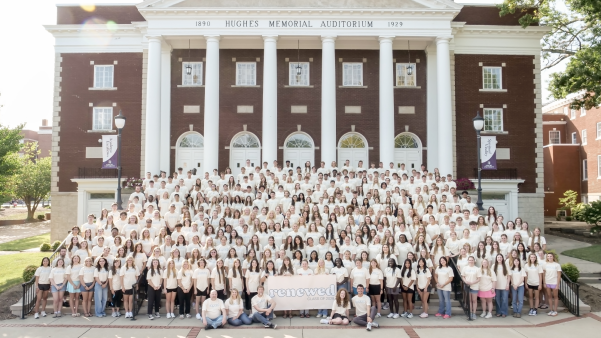For a Christian to be a steadfast follower of his Master Jesus Christ in Nazi Berlin during the years 1939 and 1940, when the frenetic arrogance of Hitler seemed to be carrying all before it, meant that he had to be in deadly earnest. Allegiance to Jesus of Nazareth, the Jew, the non-Aryan, who according to the sacrificing high priests of the herrenvolk religion had very properly been eliminated, was both unwelcome and unsafe in a community which acclaimed the voice of Hitler as the voice of a god and not of a man. But, as always, God had his remnant, his seven thousand, who had not bowed the knee to Baal. One such was Helmut Gollwitzer who, during those years was Martin Niemöller’s successor as pastor of the Confessional Church in Dahlem. Sunday by Sunday he nourished his flock on the exposition of St. Luke’s Gospel. The day came when the Gestapo removed him from his pulpit and expelled him from Berlin—but not before he had completed his exegesis of this Gospel. The text of the 15 sermons on the concluding section of the Third Gospel, covering the agony, arrest, trial, death, and resurrection of Christ, has now been made available in an English translation by Olive Wyon with the title The Dying and Living Lord (SCM Press, London, 1960). The reading of this small book is a moving and enriching experience.
As we come once again to the season of Gethsemane, Good Friday, and Easter, these sermons preached under the menacing shadow of the Swastika have a great deal to communicate to us who, for the present, are living under no such shadow. “Here is no question of the fear of death, in the usual human sense of the words,” declares the preacher of Christ’s agony in the Garden. “ ‘He began to be greatly distressed and troubled,’ says Mark the Evangelist. The Greek text uses a terrible word: ‘He began to despair.’ This is the expression of an unspeakable horror—of an infinite suffering. It seems to go far beyond anything that anyone on this earth could ever experience, something that goes further than any suffering which had ever been endured upon this earth before. Something quite different seems to be happening. It seems to be a horror in presence of the strange plan and decree of God Himself.… God’s Son plunges into those depths and takes upon Himself the extreme horror of human existence, which would have awaited each one of us, when we were brought face to face with God. Calvin has said, rightly, that this hour in Gethsemane was our Lord’s descent into hell. He has gone through hell, ‘into the extreme of misery, in order that I might not die.’ ”
The look which Christ gave Peter after the denial “is that of an innocent man who was put to death. As He passes before us on his path of sacrifice, he is treading the way to execution which we should be treading ourselves. His look penetrates us, and each of us knows: ‘It is I, it is I, who have to repent.’ But he goes on his way and is nailed to the Cross, and we walk scot-free, while an innocent Man is put to death; and all we can find to say about him is: ‘I do not know the Man.’ ”
We move on to the trial. “Those who beat Him then, and those who do the same today, are beating themselves. Those who mock Him, are mocking themselves. For the Man Whom they are ‘holding’ with their rough hands, the One Whom they have been beating, was Himself their own life; and when they spit upon Him they are insulting the One who was and is our only hope. Again and again we are horrified, as we read and ponder the Passion story, to think that here we could be so mad as to act against ourselves—that we men are so perverted that we do all we can to insult our true life, our real hope, and then to beat, and spit upon, and revile it.”
And so the account moves on to the Cross. “The suffering of Christ points us away from our own suffering to the suffering of God for this world. The suffering of Christ is the deepest participation of God in this world. You must understand this in order that this may really help you in your own suffering, and in your effort to share the pain of others; the suffering of Christ gives an awe-inspiring gravity to our life. It shows us that ultimately, at the root of all our suffering, is our sin.… Christ’s way of the Cross was a way into a desolation which none of us can ever know, but which would have been our lot—the lot of us all—had Christ not trodden this way before us. The cross of Christ is the sign of the separation between heaven and earth, which we could never grasp, but as it would have confronted us had not the Cross been erected by God Himself.”
There follows the wonder of the Resurrection. “If anyone says ‘This is impossible!’ he is saying nothing new. He is only saying what the Bible emphasizes. It was no easier for Peter and Paul than for a modern scientist to believe that this Jesus who was dead is alive.” “What does the Lord do, after He has come back to His disciples from the land of death?” inquires the preacher. “What is it that He regards as the most important thing to do? He gives them a Bible lesson.… ‘Then He opened their minds to understand the scriptures’.… How could anyone possibly hit upon the wrong idea that the Church could do without the Old Testament, even for a day, when Jesus Christ, after His Resurrection, had nothing more important to do than to open the Old Testament and to expound its meaning? How could anyone even think that it is still the Church of Christ if it closes the Old Testament instead of opening it? How is it possible for people to think that we become more Christian, that we can witness to Christ better, if we break with the Old Testament?”
Helmut Gollwitzer is now back in Berlin as Professor of Theology. The religious thought of our day is in need of more contributions distinguished by the spiritual perception and devotion of these sermons of his. Read them for yourself.










